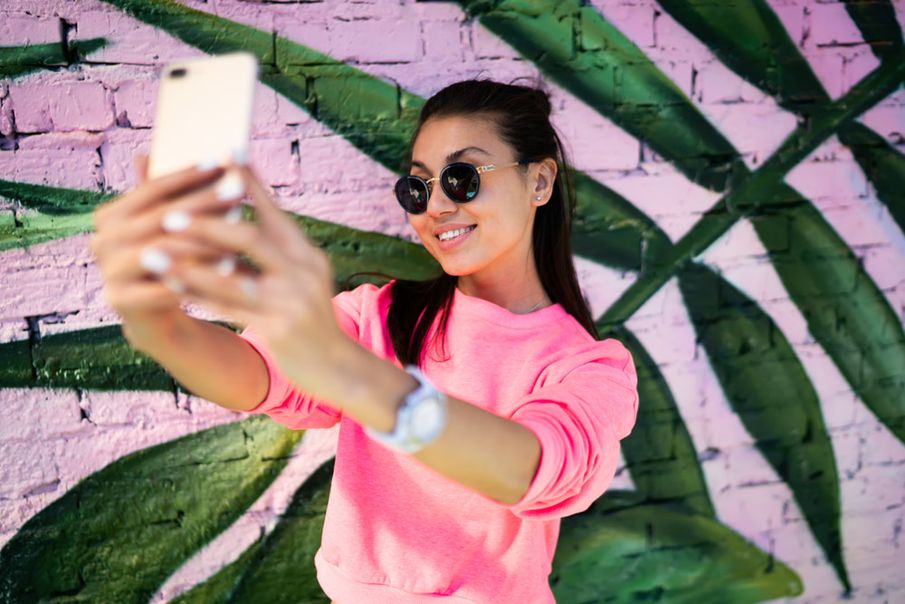Influencers are a staple part of our culture in 2023, so how can we make sure to keep our digital relationships with them healthy?
Fashion, parenting, cooking, crafting, lifestyle, beauty, health, fitness, and the rest – these days, there’s an online ‘influencer’ for everything under the sun. And, in many ways, they can be a really positive addition to our lives. From sharing top tips, creating digital communities, and updating us on the latest news, the people that we chose to follow online can add a lot to our lives.
But, there is a flip side. Research published in the journal Psychology of Popular Media Culture found that the more time that people spent on Instagram, the more anxious and depressed they felt, with the tendency to compare themselves to others being one of the key factors in those feelings.
So, how can we keep our relationship with influencers healthy, so we can reap the benefits of engaging with people online while protecting our mental health? We’ve got some ideas…
1. How does this content make you feel?
Say you see someone come up on your feed, you’re really interested in what they have to say, and you like the content they produce. But, in the background, something about seeing those posts starts to make you feel a certain way – it might throw you off your day, or be a negative niggle in the back of your mind that won't shift. Maybe it’s a parenting post that causes you to feel a sense of guilt, a fitness shot that prompts you to reflect badly on your own body, or even a hobbyist who leaves you feeling inadequate.
Whatever it may be, if you notice that something triggers negative thought spirals, give yourself permission to step back from that content – there’s no shame in protecting yourself from unnecessary stress.
2. Drop-in, rather than follow
Although, sometimes, our reaction to certain content might indicate that there are areas of our lives, our emotions, and our wellbeing that we need to nurture, other times, we can just be caught off guard, or be in a bit of an ‘off’ mood when we come across it.
A particular brand of content might not faze us one day, and the next it could. And this could be for countless reasons, including mood, base stress levels, and anything else that may have happened to us that day.
So, checking in on someone to enjoy their content when it bring you positive feelings – rather than being caught off guard when their posts appear on your feed – is a good way of looking out for yourself while still engaging with the things that interest you.
3. Know when enough is enough
As the study published in Psychology of Popular Media Culture found, the longer we spend on social media, the more risk we have of poor mental health. So, if you’re experiencing anxiety or depression as a result of the things that you’re seeing online, it might be worth considering if the time you’re spending on the apps could be contributing to these feelings.
Think about it, it’s pretty odd that – at any given time – we can access unlimited insight into other people’s lives. In small doses, the whole thing can be a bit of a novelty. It feeds our curiosity, and can inspire and engage us. But, be wary of how much time you spend scrolling, and take steps to try to limit it if you feel it’s getting out of hand.
4. What are your feelings trying to tell you?
It’s worth taking some time to reflect on your reactions, to try to figure out the root of the problem. If you find that your feelings are affecting you to the point where they’re detrimental to your daily life, it’s worth reaching out to a professional, so that you can explore them in a safe and supportive environment.
But you can also try writing about them in a journal. You could track your mood and your feelings throughout a month, and see if there are any patterns. Or, you could speak to friends and family about your emotions – chances are, they can probably relate in one way or another. However you chose to do it, taking some time to recognise the things we feel is the first step to taking back some control, and building a healthy relationship with influencer culture.


Comments